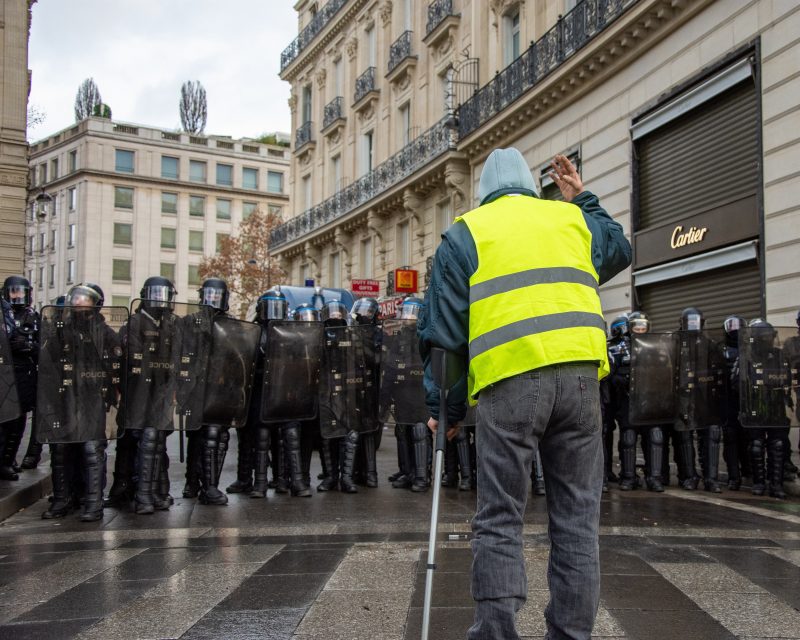Status of the transition to green & fair economies: Executive Summary
Read the overview of our 2024 barometer that tracks the latest trends in green economy thinking & policy developments

The following is the Executive Summary of our new research report, "Status of the transition to green & fair economies 2024." Read the full report here.
We live in a world of fractal, metastasizing crises. Armed conflict, humanitarian emergencies, forced displacement, rising energy and food prices, democratic decay, institutional paralysis, and spiralling national debt are all being compounded by climate change, biodiversity loss and rising inequality – the so-called polycrisis.
“ The old world is dying, and the new world struggles to be born: now is the time of monsters.”
Yet despite these escalating threats – or perhaps because of them – we also live in a moment of transition. Around the world, we can see glimmers of systemic, structural shifts in the way economies and societies are functioning, evidence of the new world struggling to be born:
Social justice is becoming the cornerstone of a green transition: There has been a marked shift towards embedding societal outcomes within climate and environmental action. This is not just because of the moral imperative of leaving no-one behind in the green transition, but because decision makers increasingly see that transformative policy will fail without citizen buy-in.
Low- and middle-income countries are defining their own transition pathways: More and more Majority World countries are not only seizing the opportunities of green energy, but they are also forming their own macro-economic approaches to climate, nature and a just transition.
The agenda for multilateral and global finance reform is gaining traction. Led by Barbados Prime Minister Mia Mottley, the Bridgetown Initiative has created a new movement – led by small island developing states and low- and middle-income countries – to transform the existing model of development financing and shake up the Bretton Woods institutions that govern it. Under pressure from Bridgetown’s calls for a step-change in liquidity outlays and debt forgiveness, the Washington consensus on development assistance looks ever-more obsolete.
A new dawn for green macro-economic governance: Taken together, the US Inflation Reduction Act and the EU Green Deal are already beginning to rewire the respective economies of two of the world’s largest trading and production regions, with strong international implications. These ambitious macroeconomic policies not only mark a step-change in green industrial policy, but have also sought to improve the lives of poorer communities and vulnerable sectors.
Despite the complex geopolitical and economic background, the new clean energy economy is rising, led by solar PV and electric vehicles (EVs). China leads with $676 billion invested in 2023, or 38% of the global total. Together, the EU, US and UK invested more than China in 2023 (BloombergNEF’s Energy Transition Investment Trends 2024).
Against these trends, however, our networks are seeing some new threats and persistent challenges that risk derailing the transition:
A global ‘gold rush’ for critical minerals is taking hold: Demand for rare earth minerals and metals has soared in recent years, as more industries and countries transition to cleaner energy sources. Much of the extraction is happening in a governance vacuum with little regard for environmental standards or human rights.
The private sector is not paying up: While the issue of biodiversity loss has risen up the agenda of government and business, and new mechanisms such as biodiversity credits are evolving rapidly, private sector investment to protect nature at scale, increase resilience and adapt to climate change remains woefully small.
Climate is now a ‘wedge’ issue: Climate, environment, decarbonisation, and just transition policies are no longer mere fringe issues in the domestic politics of many countries – instead they are moving into the mainstream. With mainstream attention comes increasing scrutiny, push-back, and contestation; and we now see environmental issues being used as “wedge issues” designed to drive partisan outrage and divide electorates.
Green and just structural reform within our financial systems remains missing at scale: While there have been some positive trends including carbon pricing, financial disclosure and coal divestment, fossil fuel subsidies have increased dramatically, and deeper structural economic transformation has yet to take hold.
Trust in institutions and green market mechanisms is low: Recent scandals in the carbon credit markets and increased scepticism that national governments will live up to climate pledges is generating a significant trust deficit between citizens and their political leaders.

To catalyse the much needed structural green transition, we must overcome these challenges and push for ambitious action on multiple fronts. We have identified the following priority areas for maximum impact:
- Rebuild trust: Public faith in institutions, markets and decision makers is foundational for accelerating the transition to green and fair economies. Governments and businesses should prioritise citizen and multi-stakeholder dialogue, participatory governance and more novel forms of participatory decision making to generate a new eco-social contracts fit for the future.
- Move from “what” to “how”: Rational policymakers now understand that an inclusive green economy offers compelling answers - jobs, livelihoods, energy security, health, industrial development - to many of the interrelated challenges that nations are facing. The issue therefore is not what to aim for, but instead how to achieve it. Stakeholders therefore need to prioritise process, financing, and delivery.
- Unlock finance: International financial institutions, MDBs, national development banks and governments need urgently to mobilise private sector investment in nature and resilience/adaptation by providing seed capital to funds and other financial instruments that aggregate projects. They should also support the integration of biodiversity criteria into the financial sector decision making by adopting natural capital accounting practices.
- Frame a new agenda: Funders and decision-makers need to prioritise enshrining principles of planetary limits, justice and inclusion into potential flashpoints in the coming green transition, especially critical mineral governance, sustainable global value chains, and fossil-fuel phasedown.
- Empower citizen oversight: Communities, citizens and civil society organisations must play a critical role in holding decision-makers to account for their claims, promises and pledges. As civic space is diminishing in many parts of the world, it is imperative that global networks provide solidarity and voice to marginalised communities and sectors, through new deliberative and democratic tools and a renewal of the eco-social contract.
- Emily Benson


